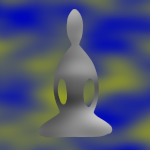Dear Friends,
In Equanimity Practice, Jill invites the retreat participants into another relational practice related to equanimity.
First she brings in an interesting question, as this was the penultimate day of the retreat – inviting the participants to notice how they are responding to the ending of the retreat as that can highlight the habitual tendency we might have for any type of ending.
The three scenarios she outlines are:
- To skip over the ending and jump on to whatever the next thing is that we think will make us happy.
Viscerally, there may be a feeling of leaning forward.
There may be a sense of impatience. - To resist endings – to put them off as long as possible.
There may be a feeling of pulling back.
There may be some procrastinating or anxiety. - To be in denial about endings – to not really take it in.
“And then suddenly we’re back at home, or back at work, and wondering what just happened.”
She describes these as “the core energies of greed, of hatred, of delusion. Greed goes to wanting the retreat to end. Aversion goes to resisting the ending. Delusion spaces out, doesn’t really register what’s going on.”
She also notes that sometimes we swirl between all three of them in rapid rotation.
I have noticed all three of these responses arise for me in different scenarios, but I probably most often fall into the “what just happened” energy of delusion.
This little section reminded me of one of the modules in the Living the Dharma Program, which included an article and quiz on the “Buddhist Personality Types”. In the article, Amita Schmidt wrote:
The three types of Buddhist personalities, paired with their positive tendencies, are Greed/Faith, Aversive/Discerning Wisdom, and Deluded/Speculative. The Greed/Faith personality type is characterized by craving and optimism, the Aversive/Discerning type by criticism and clarity, and the Deluded/Speculative type by doubt and equanimity. Each type has its neurotic tendencies and its awakened tendencies, and the spiritual task is to learn how to strengthen the awakened aspects.
Amita Schmidt. “Which Buddhist Personality Type Are You?” Tricycle: The Buddhist Review, Spring 2009
https://tricycle.org/magazine/buddhist-personality-type/ and also available on Amita’s website
https://amitaschmidt.com/wp-content/uploads/2017/11/personality-types.pdf
I remember the fun we had in that month’s meeting, each describing our traits as “delusion with aversion arising” or whatever was most applicable. It was good to see that these are habit energies that we don’t need to take personally, and that we have ways to hone that energy into skillfulness.
In terms of the equanimity reflections Jill invited, you could try some mindful journaling with each. As a journaling exercise, first settle into a sense of grounding in the body/heart/mind. Then set a timer for 3-4 minutes and just write – if you don’t know what to write, you can write “I don’t know what to write” – and just keep writing until the time is up.
Here are the reflections from Jill – take time to re-ground between each question:
- Explore how you’ve experienced equanimity during this retreat [or for us, during a week or day or a meditation period] – how have you experienced anything in the general terrain of balance, of ease, of acceptance, of non reactivity, of peace, of freedom, of whatever equanimity means to you in your current understanding.
- Right here, right now, is equanimity present or not, how do you know? how does it feel in the body, the heart, the mind, when stability is present, when it’s absent
I have also participated in small groups, where the questions for reflection are along this line:
- Tell me a way you are pulled away from steadiness or stability?
- What tools do you use to cultivate steadiness/spaciousness in those times?
These are invitations to explore, with some lightness and interest, to learn more about what habits you may have and how to skillfully hone that energy. I’d love to hear what you learn!
With good wishes,
Andrea
